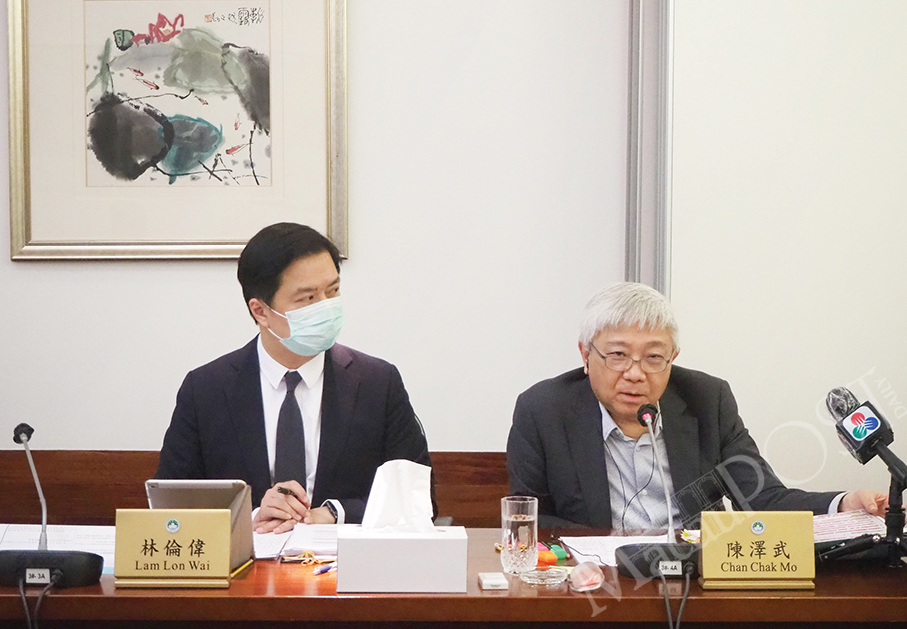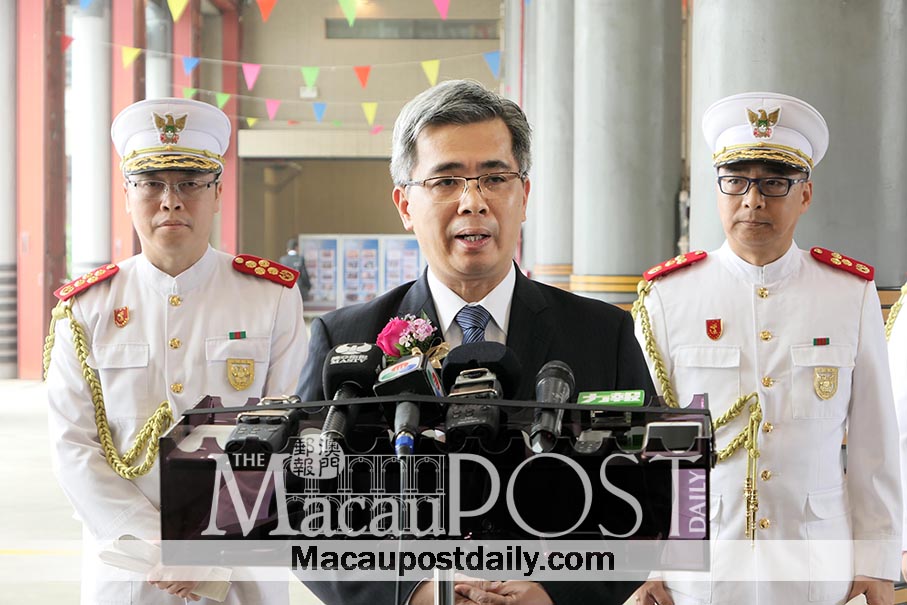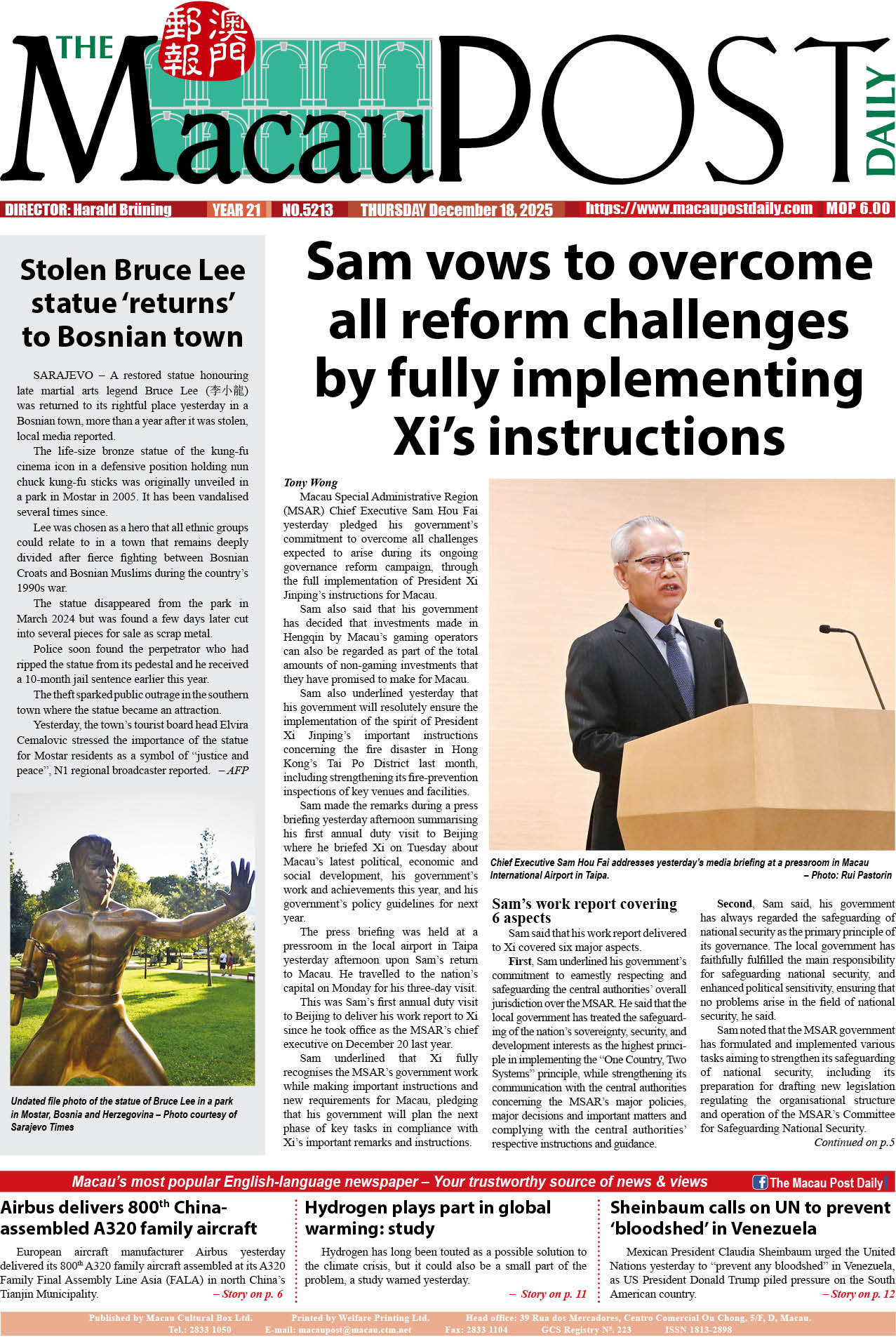Lawmaker-cum-restaurateur Andrew Chan Chak Mo, who chairs the Legislative Assembly’s 2nd Standing Committee, said yesterday that he expects a future law regulating the city’s junkets – officially known as gaming promoters – to be passed by the Legislative Assembly (AL) before August 15, when the legislature’s summer recess is slated to start.
Addressing a press briefing after yesterday’s closed-door meeting reviewing the city’s gaming amendment bill with government officials, Chan said that the meeting went off “very smoothly”, adding that a future law on junket operators needed to be passed as soon as possible so that the government’s gaming concession bidding process can get off the ground.
The 2 ½ -hour meeting was attended by Secretary for Economy and Finance Lei Wai Nong and other government officials, including 10 lawmakers who are not members of the 2nd Standing Committee but are entitled to attend the meeting without taking an active part in them.
The gaming amendment bill proposes that junket operators can only engage in gaming promotion businesses, and only in the form of a company, in exchange for “commissions” from the gaming concessionaires, i.e., they will no longer be allowed a share in the concessionaires’ revenues.
In response to the changing role of the gaming promoters, Chan quoted the government officials who attended yesterday’s meeting as saying that it will no longer be an administrative regulation (by-law) but a specific law that will regulate the operations of Macau’s junket operators. The future law will also clearly define the operations of casino management companies and gaming promoters as well as individuals who have been hired by the latter. It will also define the scope of the business activities and responsibilities by the respective companies and individuals, Chan quoted the officials as saying.
According to Chan, the future law on junket operators is still being drafted by the government.
Meanwhile, the gaming amendment bill defines such individuals as “collaborators” hired by gaming promoters to assist them in their intermediary business operations. These “collaborators” need to be licensed by the Gaming Inspection and Coordination Bureau (DICJ).
According to the bill, the future gaming concessionaires are not allowed to share their revenues with, or pay commissions to, the management companies but are only permitted to pay them a management fee.
Chan stressed that the gaming operating rights will only be granted by the government to the city’s up to six concessionaires, and that the future gaming concessionaires are not allowed to transfer those rights to third parties.
Chan quoted the government officials as saying that the bill proposes that management companies can partially or fully manage casinos through an agreement signed with any of the future concessionaires, which includes duties such as security, casino operations and administration.
Reporters asked whether the respective management fee could be adjusted. Chan responded that it would be an officially fixed amount in general and that any adjustments would need to be approved by the chief executive.

Lawmaker-cum-restaurateur Andrew Chan Chak Mo (right), who chairs the legislature’s 2nd Standing Committee, talks to reporters after the committee’s closed-door meeting yesterday reviewing the government’s gaming amendment bill, as the committee’s secretary, Lam Lon Wai, looks on. Photos: Ginnie Liang








